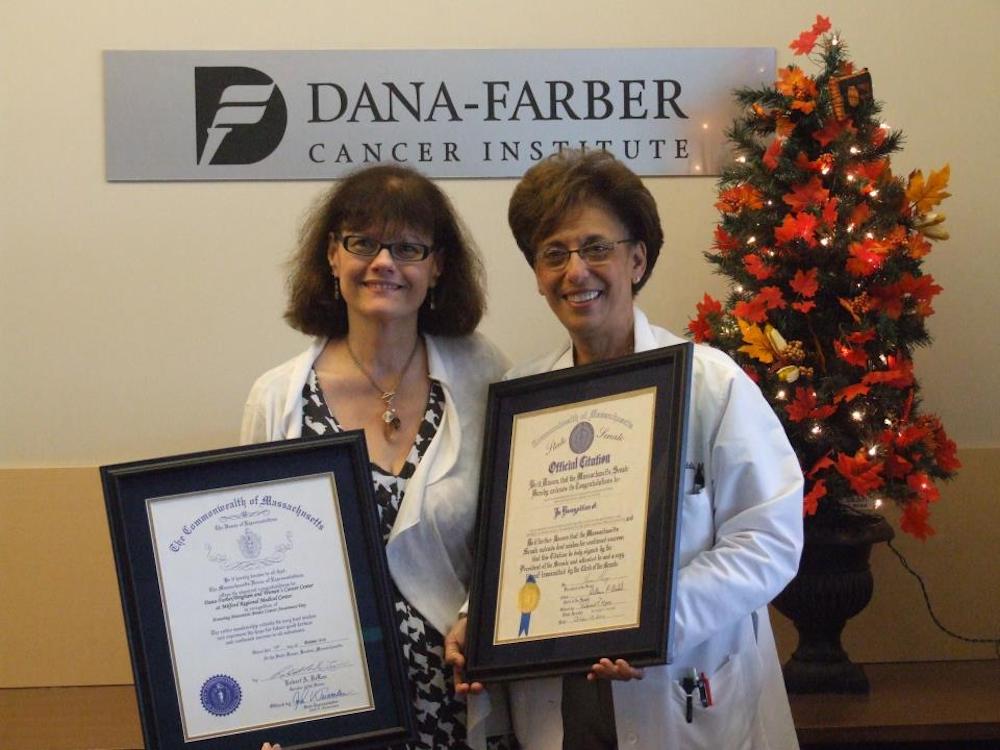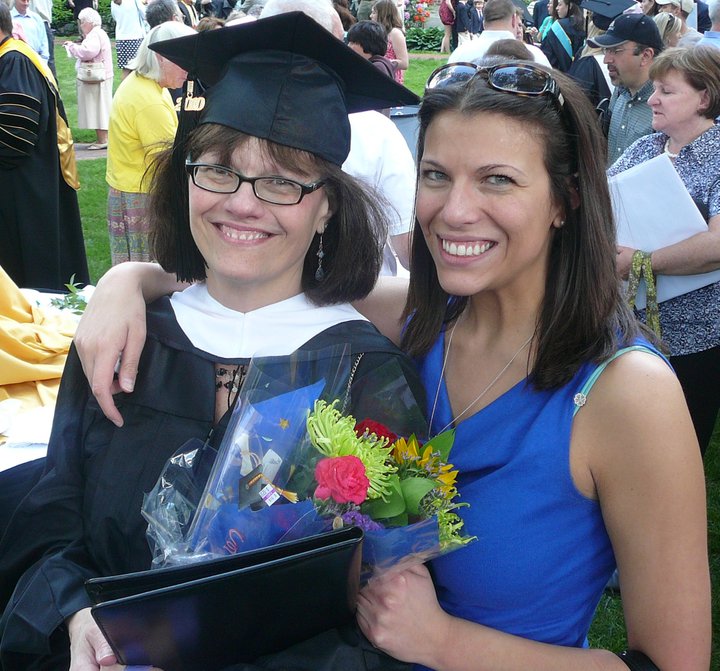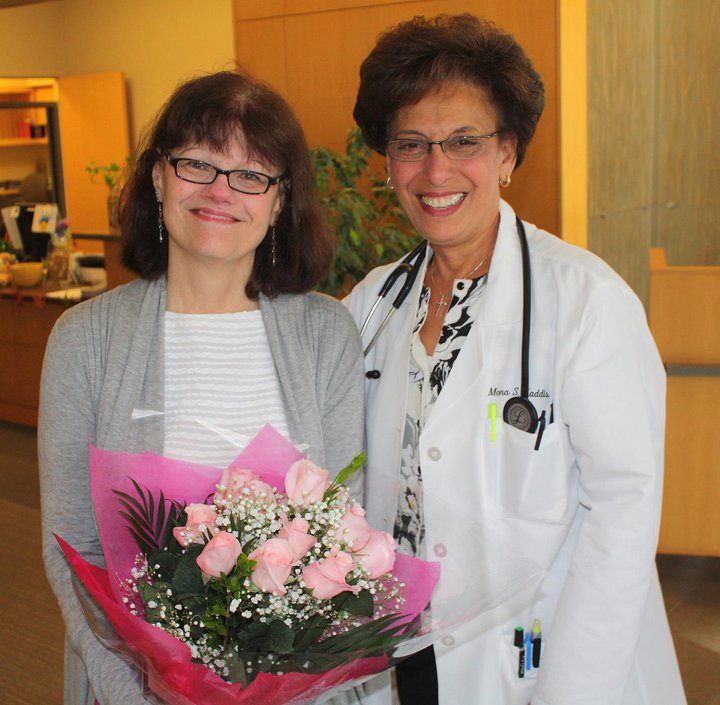
As a breast cancer survivor living an hour away from Boston, Deb Ragosta was thrilled when Milford Regional Medical Center – located just a few minutes from her Hopedale, Mass., home – became affiliated with Dana-Farber/Brigham and Women’s Cancer Center (DF/BWCC) in 2008. While she had completed active treatment in 1995, she knew the partnership would benefit other area families dealing with a diagnosis.
What Ragosta didn’t know then was that her breast cancer would return a year later, this time as stage IV disease that had metastasized to her bones. Suddenly, having world-class care nearby became more than just a convenience.
“I know I will be in treatment for the rest of my life, and the staff at Dana-Farber/Brigham and Women’s Cancer Center at Milford Regional Medical Center wrap me in support – not just on appointment days, but every day,” says Ragosta. “Everybody from the doctors and nurses to the diagnostic and imaging staff are wonderful. It feels like family.”

Ragosta says she feels like singing the theme song to the TV show “Cheers” when she goes to the center because “everybody knows my name.” Ragosta worked in the marketing department at Milford Regional before and after its collaboration with DF/BWCC, so for several years of her treatment she was at the hospital or the cancer center often, making it feel even more like a second family.
Another instance of serendipity is that the oncologist who treated Ragosta after her first breast cancer diagnosis in 1990 – Mona Kaddis, MD – had left private practice and joined the staff of DF/BWCC at Milford Regional by the time of her 2009 recurrence. “I take oral chemotherapy every day, and see Dr. Kaddis every four weeks,” Ragosta says. “I feel so lucky to have had her caring for me all these years.”
Kaddis says that Ragosta’s positive attitude in the face of her original diagnosis and her recurrence has been a big benefit in her care, and made her the type of patient others can look to as an inspiration.

“From the start, Deb has been willing to try every clinical trial and every new therapy made available to her,” says Kaddis. “She’s become very knowledgeable about her disease and is always willing to reach out to other patients online or in person to help them see they can live a full life with their cancer.”
Ragosta’s long-term survival, adds Kaddis, has also allowed her to benefit from the targeted, less toxic treatments that are becoming increasingly available to metastatic patients. “Since her recurrence, Deb has benefitted from all the new anti-estrogen and targeted therapies without resorting to standard chemotherapy,” says Kaddis. “She is the perfect example of how metastatic breast cancer today can be a chronic disease rather than a terminal one.”
Learn More:
When she moved a few months ago, Ragosta found a home in Plainville, Mass., that was close to both the center and her daughter, Elizabeth. In addition to her job teaching driver safety, Deb watches her two young grandchildren two days a week and writes extensively about her cancer experiences – both on her personal blog and for other outlets. She says that writing is a helpful form of therapy as well as a way of spreading awareness about metastatic breast cancer.
And as a way of giving back to the place that has done so much for her, Ragosta has led writing classes for other cancer patients at DF/BWCC at Milford Regional. She’s also continuing to look into the latest treatment options, and is open to making the occasional long drive to Boston to participate in a clinical trial.
“There are no guarantees in life,” Ragosta says, “but I’ll never go anywhere else for my care.”

What a wonderful message of hope, progress, commitment, perseverance, sharing and helping others!